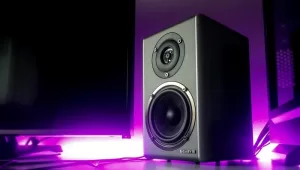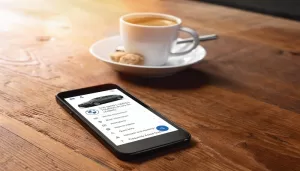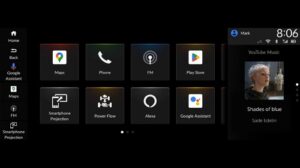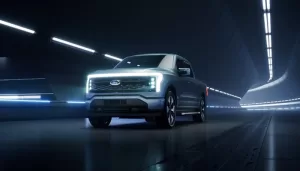Volvo Cars to embed Google Assistant, Google Play Store and Google Maps in next-generation infotainment system
Volvo Cars, the premium car maker, announced it is working with Google to embed the voice-controlled Google Assistant, Google Play Store, Google Maps and other Google services into its next-generation Sensus infotainment system, based on Google’s Android operating system.
Volvo Cars’ intended partnership with Google will further enhance the way Volvo customers engage with and interact with their cars. Apps and services developed by Google and Volvo Cars are embedded in the car, plus thousands of additional apps are available through the Google Play Store that is optimised and adapted for Android-based car infotainment systems.
Since the next generation of Sensus will run on Android, new apps and software updates will be available in real-time and can be automatically applied. This allows future Volvo cars to react to customer needs and offer drivers up-to-date information and predictive services.
Volvo Cars to embed Google Assistant, Google Play Store and Google Maps in next-generation infotainment system“Bringing Google services into Volvo cars will accelerate innovation in connectivity and boost our development in applications and connected services,” said Henrik Green, senior vice president of research and development at Volvo Cars. “Soon, Volvo drivers will have direct access to thousands of in-car apps that make daily life easier and the connected in-car experience more enjoyable.”
The Google Assistant provides a central voice interface for the car that allows drivers to control in-car functions such as air conditioning, and use apps to play music and send messages. This integration contributes to reducing driver distraction, helping drivers keep their eyes on the road at all times.
Google Maps will also enable the next generation of Sensus to provide refreshed map and traffic data in real time, keeping drivers informed about upcoming traffic situations and proactively suggesting alternative routes.
This announcement builds on the strategic relationship between Volvo Cars and Google, which began in 2017 when Volvo Cars announced the new generation of its infotainment system will be based on Google’s Android platform. The first Android-based system is intended to be launched in a couple of years from now.
Volvo Cars is committed to developing strategic relationships with third parties to broaden the range of connected services offered to Volvo customers, embracing the disruption currently underway in the car industry.
The company also continues to develop its own apps, software and connected services within the Volvo Car Group, using its growing force of software engineers.
“The Google partnership to be entered into is an important strategic alliance for Volvo Cars,” Henrik Green said. “The Android platform, Google services and Google’s working relationship with app developers in-house and worldwide will help us further improve the Volvo car experience.”
Volvo Car Group in 2017
For the 2017 financial year, Volvo Car Group recorded an operating profit of 14,061 MSEK (11,014 MSEK in 2016). Revenue over the period amounted to 210,912 MSEK (180,902 MSEK). For the full year 2017, global sales reached a record 571,577 cars, an increase of 7.0 per cent versus 2016. The results underline the comprehensive transformation of Volvo Cars’ finances and operations in recent years, positioning the company for its next growth phase.
About Volvo Car Group
Volvo has been in operation since 1927. Today, Volvo Cars is one of the most well-known and respected car brands in the world with sales of 571,577 cars in 2017 in about 100 countries. Volvo Cars has been under the ownership of the Zhejiang Geely Holding (Geely Holding) of China since 2010. It formed part of the Swedish Volvo Group until 1999, when the company was bought by Ford Motor Company of the US. In 2010, Volvo Cars was acquired by Geely Holding.














